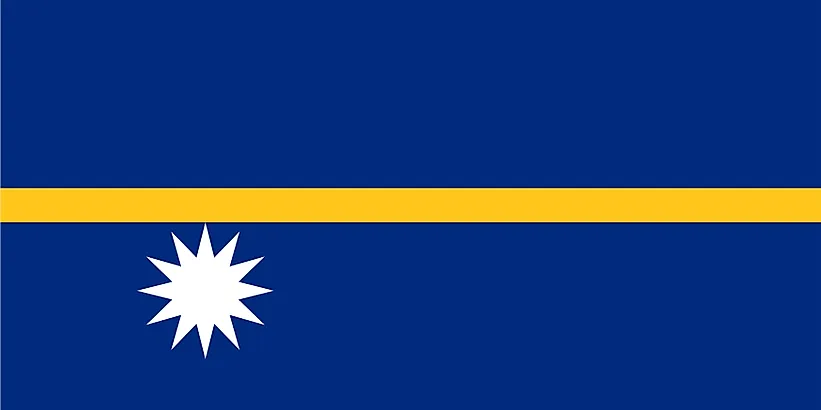
ナウル
| 大陸 | オセアニア |
| 資本金 | ヤーレン |
| 人口 | 9,591 |
| GDP | $150.80 百万ドル |
| 一人当たりGDP | $14,800 |
| ダイヤルコード | +674 |
| ISOコード(2文字) | NR |
| ISOコード(3文字) | エヌアールユー |
ナウルについて
広大な太平洋に浮かぶユニークな国、ナウルへようこそ。人口約1万人、面積わずか21平方キロメートルのナウルは、驚異的な回復力と独特の歴史を併せ持ち、世界最小の独立共和国として君臨しています。
地理的特徴と自然の美しさ
ナウルの地形は隆起した珊瑚環礁から成り、その周囲を縁取り珊瑚礁が取り囲んでいる。狭い海岸線が「トップサイド」と呼ばれる石灰岩の台地を取り囲んでいるのが特徴で、かつてはリン鉱石が豊富に埋蔵されていた。
その景観には、狭い海岸沿いに残る原生林や、かつてのリン鉱石採掘跡地の修復地が含まれる。この国の熱帯気候は、沿岸の植生と周辺海域の海洋生物を支えている。
保護地域には、海洋保護区や、採掘された地域の復旧のための取り組みが含まれる。同国の環境保護への取り組みは、持続可能な開発と気候変動の影響への対応に重点を置いている。
文化遺産と伝統
ナウルの文化は、古代太平洋の伝統を現代に適応させたものである。この国の遺産には、12の伝統的な部族に基づく独特の社会構造や、大きな変化を乗り越えてきた独特の習慣が含まれる。
伝統芸能には、機織り、漁業、口承伝承などがある。音楽とダンスは依然として重要な文化表現であるが、伝統的な慣習の多くは現代生活の影響を受けている。
ナウルア料理は魚、ココナッツ、パンダナス・フルーツを中心に、輸入食品を取り入れた現代的な影響を受けている。地域の集まりや家族のお祝いの伝統は、今でも島の生活の中心となっている。
歴史の旅
ナウルの歴史は、初期のミクロネシア人入植から植民地時代を経て独立に至る。島の豊富なリン鉱床は、その近代史に大きな影響を与えた。
ドイツの植民地化、オーストラリアの統治、第二次世界大戦中の日本の占領、そして1968年の独立がその重要な時期である。リン鉱石採掘の富とその後の挑戦の経験が、この国の発展を形作った。
現代の経済状況
リン鉱石資源の枯渇に伴い、今日のナウル経済は多角化を模索している。持続可能な産業とサービスの開発に力を入れている。
最近の取り組みは、環境再生、再生可能エネルギー開発、地域サービスに重点を置いている。ナウルの戦略的立地は、海運と航空サービスの機会を提供している。
国際関係とグローバルポジション
ナウルは、太平洋の地域組織に参加しながら、主要なパートナーとの外交関係を維持している。気候変動に関する経験から、環境に関する議論において重要な発言力を持つ。
ご存知でしたか?
- ナウルはかつて、リン鉱石採掘のために一人当たり世界で最も豊かな国のひとつだった?
- その国には正式な首都がないのですか?
- ナウルの空港滑走路は国土のかなりの部分を占めている?
- この島は、初期のヨーロッパ人観光客に "プレザント・アイランド "と呼ばれていた?
結論
ナウルは、変容と回復のユニークな物語を象徴している。リン鉱石採掘の過去から現在の課題まで、伝統的な慣習から現代的な適応まで、ナウルは持続可能な解決策を模索しながら進化し続けている。環境再生や経済の多様化などの課題に取り組む中で、ナウルは、その独特な島のアイデンティティを守りながら、持続可能な未来を築くことを約束し続けています。





